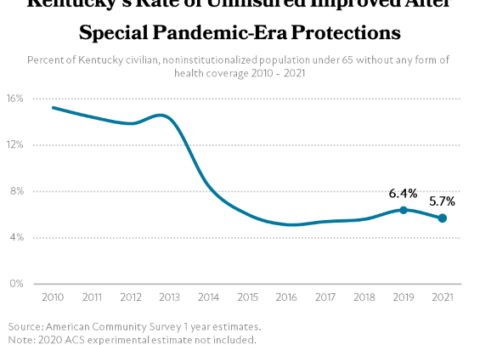Income inequality in Kentucky has risen significantly in recent decades, with the latest data showing real income for the wealthiest 1 percent of Kentuckians rose by 60.1 percent between 1979 and 2013, while dropping 2.6 percent for everyone else. It’s only one stark indicator of income inequality detailed in a new report from the Economic Policy Institute looking at trends across states, counties and metropolitan areas.
“Income inequality has been a growing problem in Kentucky and the nation since the late 1970s” said Anna Baumann, policy analyst at the Kentucky Center for Economic Policy. “It persists in relatively poor states like ours, both in big cities and small towns, pointing to the widespread problem that those at the top are disparately benefiting from growth in our economy.” Some facts from the report:
- In 1979, the top 1 percent of Kentuckians made 10.1 times what everyone else made, but by 2013 (the last year for which data are available), that ratio had risen to 16.6.
- In Kentucky’s most unequal county, Kenton County, the top 1 percent make 21.9 times more than everyone else.
- During the recovery from the Great Recession, the top one percent in Kentucky have captured a one-fourth of income growth.
- The average income for the top 1 percent in Ky. is $619,585, while for everyone else is $37,371.
Strategies to combat growing income inequality include:
- State and federal tax reform that cleans up tax breaks disparately benefitting the wealthy; restores estate taxes to mitigate concentration of wealth; and generates new revenue to invest in education, health, infrastructure and other important foundations of economic opportunity.
- Wage protections like raising the minimum wage, the new overtime threshold and safeguarding workers’ ability to bargain collectively.
“We have a choice – we can support policies that keep funneling economic growth to those at the top or we can enact policies that grow our middle class and restore the American dream,” said Baumann. “Given the need for tax reform in Kentucky, it’s especially important at this time that we differentiate the bad from the good…cutting income taxes and shifting to a consumption based system would worsen income inequality and leave us less to invest in our schools, our people, our communities.”
EPI’s report can be found here and an interactive looking at inequality across states here.

